'International cooperation is deeply rooted in our DNA'
The world is changing at a rapid pace. How should universities deal with international collaboration in these turbulent times? This question was the focus of the Strategic Partner Forum that took place during the lustrum week of the University of Groningen. During the event, University President Jouke de Vries and keynote speaker Ben Feringa made a fiery plea for international cooperation.
The event at the House of Connections was part of the Strategic Partner Forum: Making Connections in a Dynamic World. Thirty key international partners of the University of Groningen, from Northwest Germany, Europe, Asia-Pacific, Latin America, and Africa, were invited. University President De Vries welcomed the guests to the former warehouse at the Grote Markt, where the UG builds connections with the citizens of Groningen and the wider region. In his speech, he repeatedly referred to the turbulent times in which universities, and university boards, find themselves.
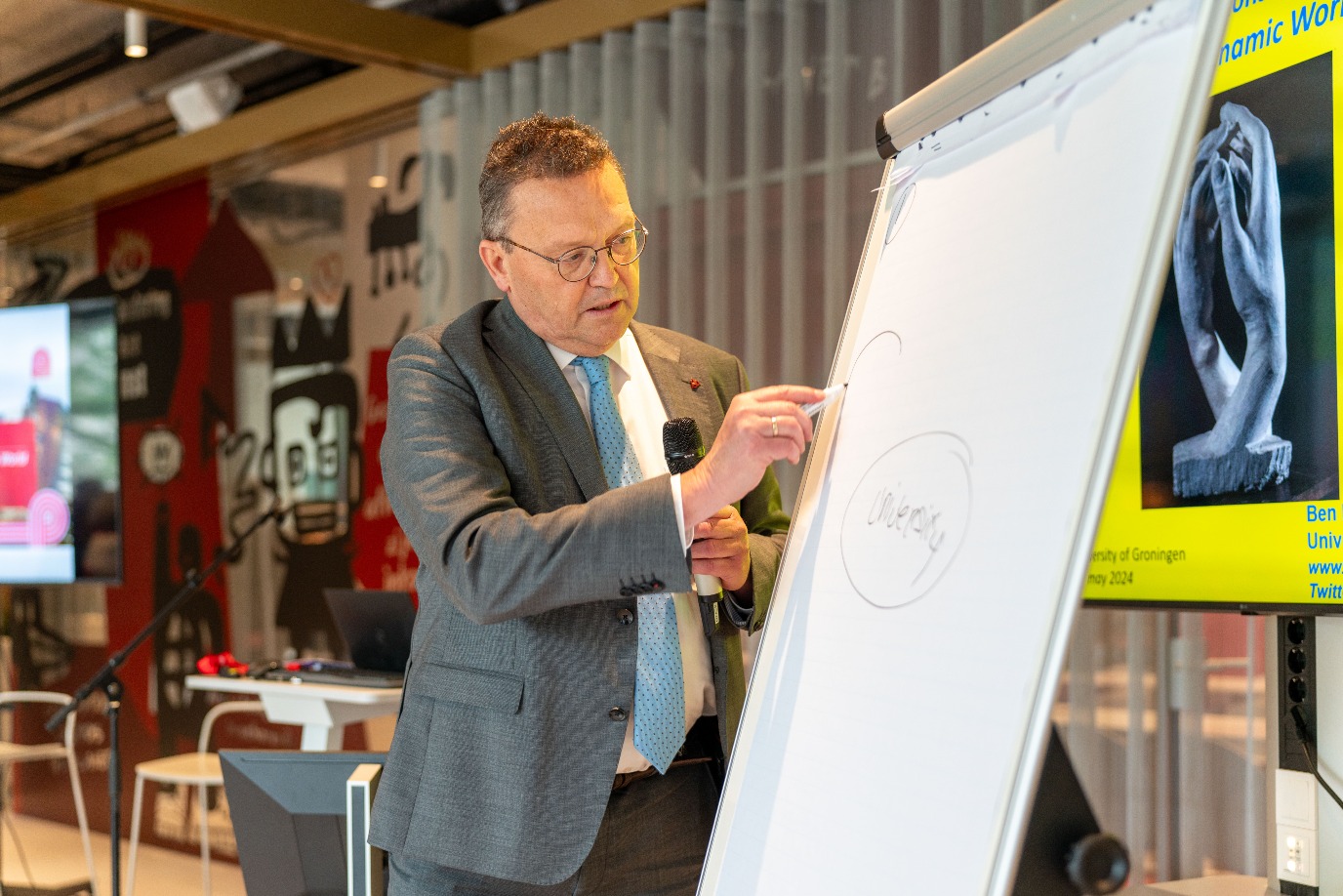
According to De Vries, all generations believe they are living in unprecedented times, and we are no exception. The balance of power in the world is shifting. This leads to new perspectives, which translates into activism at universities among both staff and students. Also, technology is causing rapid, disruptive change. And lastly, the political landscape in the Netherlands and other parts of the world is shifting. However, the President assured, the University of Groningen will remain an international university. ‘International cooperation has been deeply rooted in our university's DNA for 410 years.’
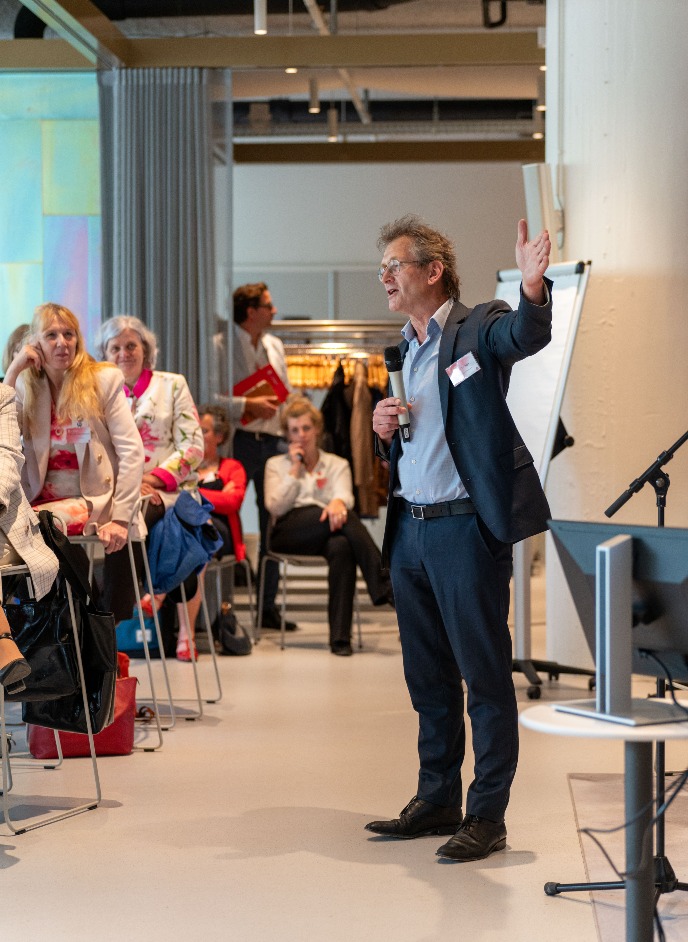
Scientific adventure
This is precisely why the university wants to keep making connections. Chemistry, the field of keynote speaker Feringa, is equally about making connections. Feringa, Nobel laureate and Distinguished Professor of Molecular Sciences, advocated international cooperation and interdisciplinarity during his speech. Furthermore, he stressed the importance of serendipity, that is, finding something as a scientist that you were not directly looking for. Feringa pointed to the technology for mobile phones, which was invented more than 50 years earlier. At the time, no one knew about the later applications. He added a quote from the British philosopher Francis Bacon: ‘They are ill discoverers that think there is no land, when they can see nothing but sea.’
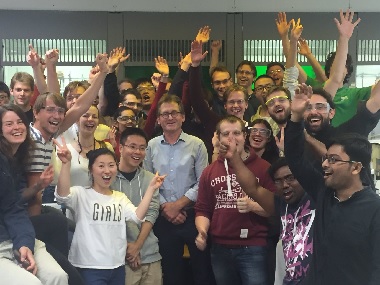
In his own career, international cooperation and interdisciplinarity were paramount, the Groningen professor said. His research was often at the crossroads of different disciplines, including chemistry, medicine and biology. To this, Feringa added collaboration with industry. He also showed a telling photo taken by then-rector Elmer Sterken just after the announcement of the Nobel Prize in 2016. The photo which was taken in Feringa's lab shows a diverse group of students and researchers from all over the world, with Feringa in the middle. Science does not stop at the border, the Nobel laureate made clear.
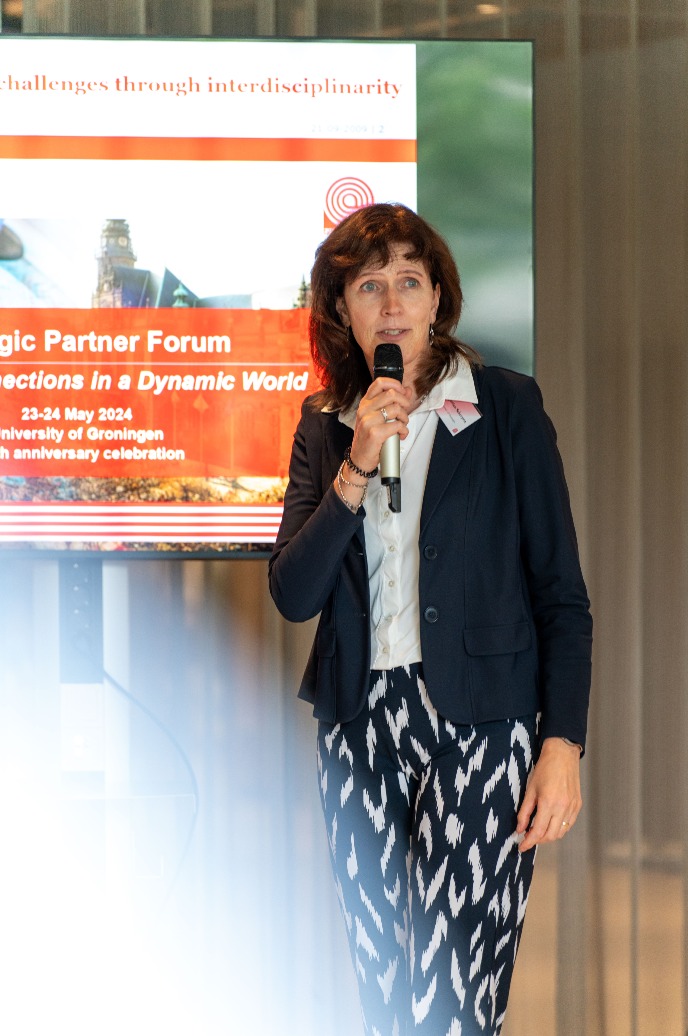
International partners
After the keynote speech, the attendees broke up into groups to engage in discussions focusing on ‘responding to societal challenges through interdisciplinarity’. After a plenary introduction by Rector Jacquelien Scherpen, the roundtable discussions were led by the four Schools for Science & Society of the University of Groningen. A session on academic leadership followed later in the afternoon, based on the premise of responsible internationalisation in times of geopolitical change. This session was led by UG professors Harry Garretsen and Janka Stoker from In The LEAD, the centre of expertise for leadership.
With the two-day gathering, the University of Groningen intended to celebrate its 410th anniversary with key international partners, says Susan Garthaus (Policy Advisor Internationalisation). Additionally, a tailor-made programme was available for the various international partners, allowing them to visit the faculties and departments of the university. ‘During the programme, senior university leaders shared experiences on managing their respective institutions in the dynamic times we live in, provided best practices, and identified areas of future collaboration. Among many other things, PhD collaboration, joint/double degrees, knowledge security, and human rights were discussed. This provided an excellent opportunity to share views.’
Author: Jelle Posthuma
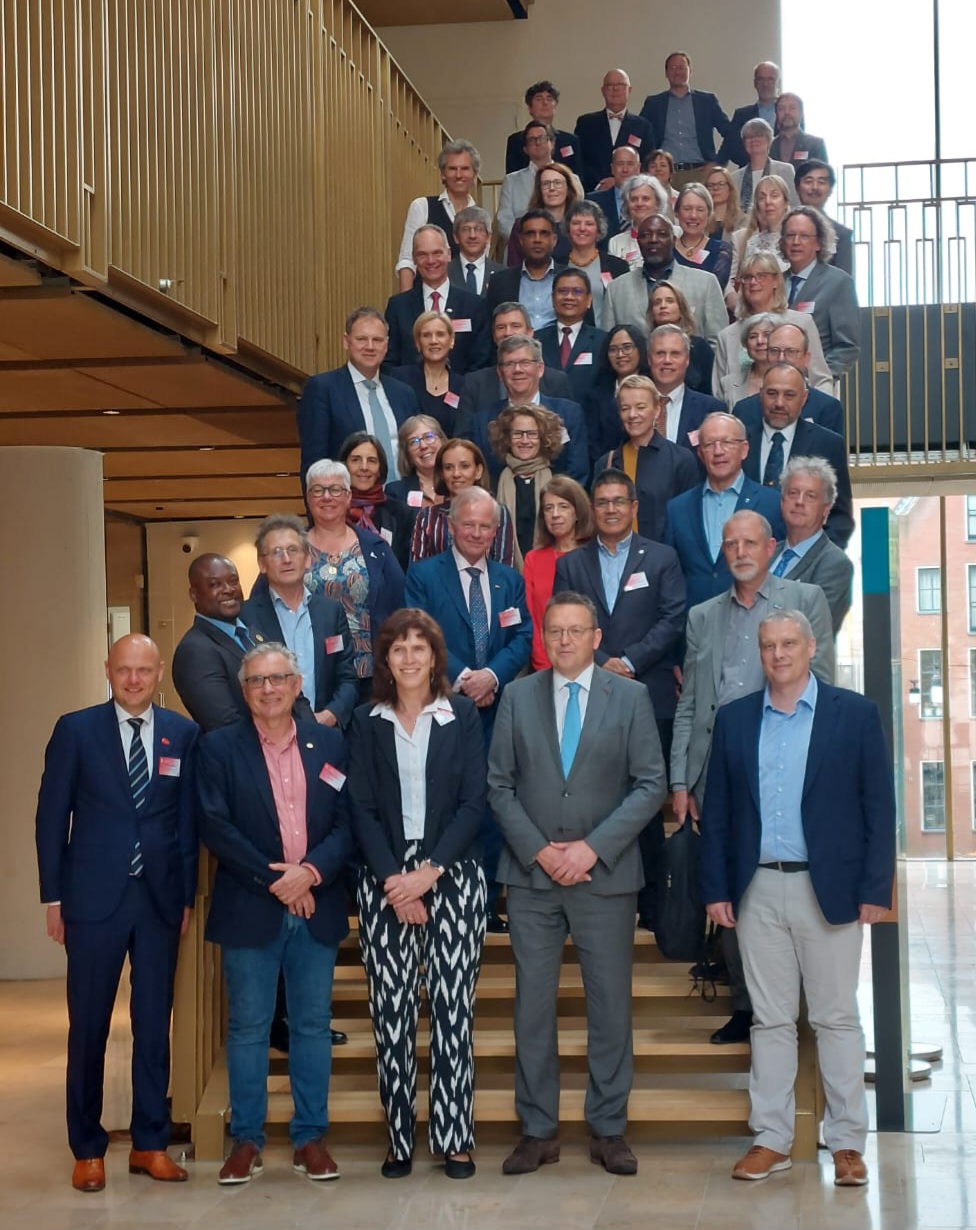
| Last modified: | 04 June 2024 10.44 a.m. |
More news
-
24 March 2025
UG 28th in World's Most International Universities 2025 rankings
The University of Groningen has been ranked 28th in the World's Most International Universities 2025 by Times Higher Education. With this, the UG leaves behind institutions such as MIT and Harvard. The 28th place marks an increase of five places: in...
-
05 March 2025
Women in Science
The UG celebrates International Women’s Day with a special photo series: Women in Science.
-
16 December 2024
Jouke de Vries: ‘The University will have to be flexible’
2024 was a festive year for the University of Groningen. In this podcast, Jouke de Vries, the chair of the Executive Board, looks back.
